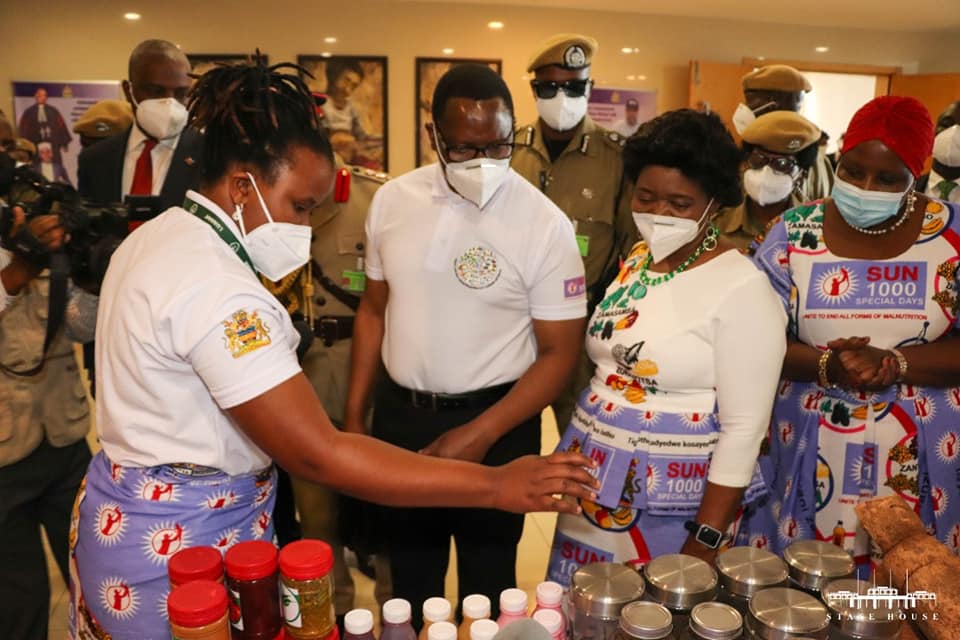Chakwera urges food diversification
President Lazarus Chakwera says Malawians need to diversify their food uptake if the country is to end all forms of malnutrition.
The President said this yesterday at the Bingu International Convention Centre in Lilongwe during the launch of Scaling Up Nutrition 3.0 (SUN) and Communication Strategy.

Chakwera said nutrition issues have not only been aligned with the Malawi 2063 agenda of making the country a middle-income economy of inclusive growth, but also with the Malawi Growth and Development Strategy. He, thus, called for national discourse on citizens’ over-reliance on nsima (thick porridge made from maize or cassava flour) as staple food.
He said: “There can be no serious discussion of the role of citizens in fighting malnutrition without a national conversation about our staple, nsima. The bottom line is that we need to find the courage as a nation to face the painful truth about nsima.
“That painful truth is that we have become over dependent on it. That painful truth is that if we do not diversify our daily diet to include foods like cassava, bio-fortified sweet potatoes, bananas and the like, we will continue to fall short of meeting our nutritional needs.”

Chakwera said his administration intends to strengthen nutrition operations and systems nationwide by allocating adequate resources to the nutrition budgets of local councils and placing nutrition officers across the country.
The President said that in spite of progress made, stunting level is still over 30 percent which is very high by World Health Organisation (WHO) standards, adding that this has triggered nutrition related non-communicable diseases such as diabetes, hypertension, gout and certain cancers.
Speaking earlier, Vice-President Saulos Chilima, who is also Minister of Economic Planning and Development; and Public Sector Reforms, appealed for the return of nutrition frontline workers in the communities.
He said: “You may recall we used to have this cadre, but it was removed from the system. This created a huge gap in delivering nutrition services at community level since nutrition education and counselling services are delivered by community volunteers.
“For things to change, Your Excellency, we need this cadre back in the communities.”
In her remarks, United Nations assistant secretary general Gerda Verburg, who is also coordinator of SUN 3.0, said Malawi has the potential of leading in scaling up nutrition.
She said: “While I am abandoning my prepared speech, let me borrow something from the Bible where it is written ‘is there anything good that can come from Nazareth?’. People would say: ‘Is there anything good that can come from Malawi?’
“I tell you, Malawi is well poised to achieve much better results through SUN 3.0 as such you need to continue working towards reading all forms of malnutrition.”
Lilongwe University of Agriculture and Natural Resources associate professor of nutrition Alexander Kalimbira said in an interview that there are a lot of gains that can be realised if Malawi successfully implemented SUN 3.0.
He said: “In the short-term, Malawi can see the reduction of prevalence of illnesses in children. In the medium-term, there can be a reduction in mortality rate among children and even adults while in the long-term, say decades, Malawi shall see steady economic growth because people who have been well malnourished are able to understand and solve their problems way much better.”
The SUN 3.0 strategy includes the “Eat Well to Live Well Guide” for prevention and management of nutrition related non-communicable diseases.





